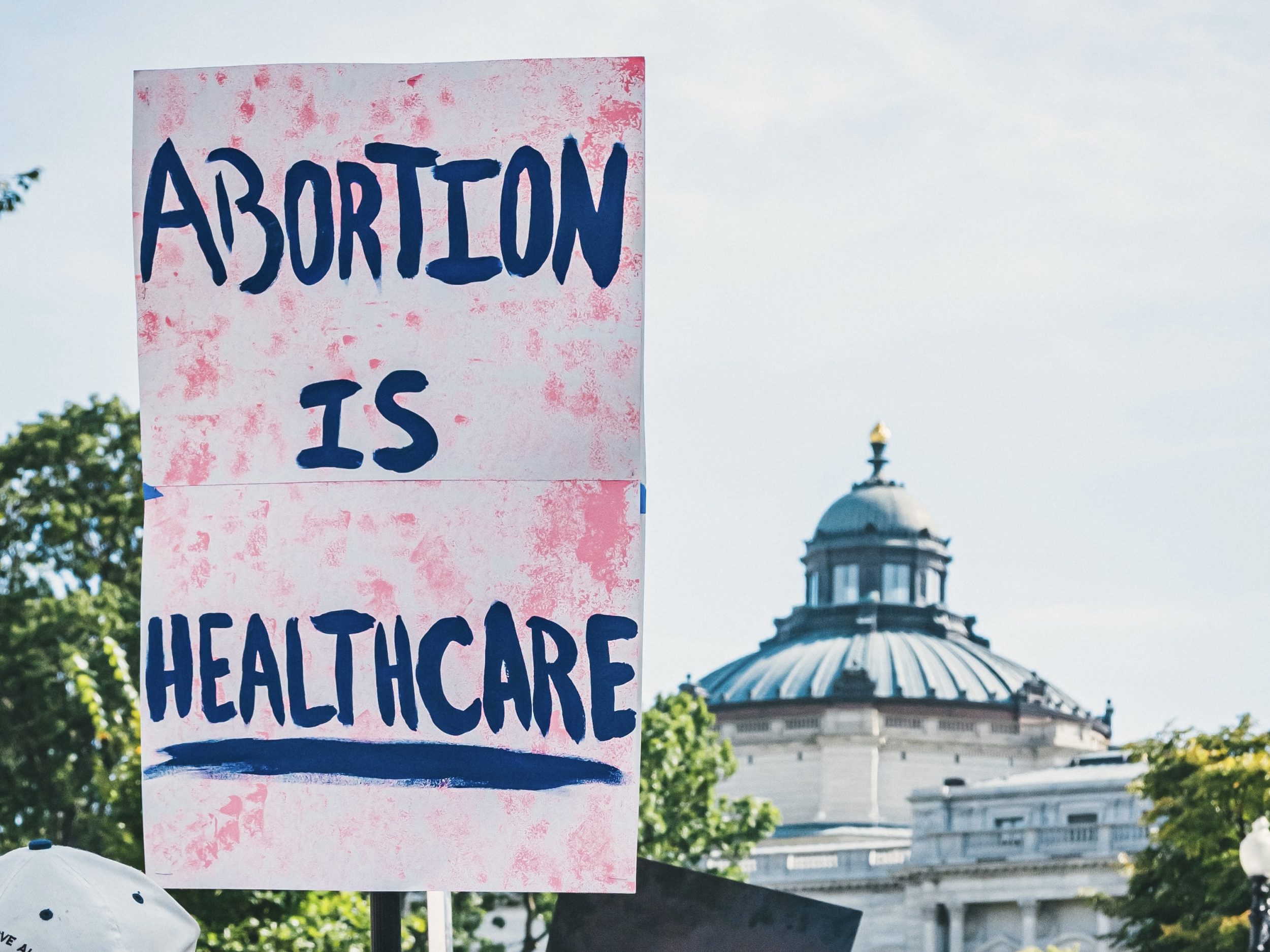Time was running out. S.B. 8, Texas’ controversial anti-abortion law, was slated to go into effect on September 1st. At the same time, a woman, scheduled to begin serving a five-year prison sentence, was desperately seeking an abortion but found care nearly impossible to access because state law already required people seeking abortion care to wait 24 hours before the procedure. She reportedly became despondent, falling to her knees and begging clinic staff to perform the abortion, only to find herself turned away. The state will almost certainly force this woman to give birth in prison.
She’s far from alone. In our work as public health researchers and providers, we encounter situations of denied abortion access like this all the time.
Opposition to abortion does not simply occur in states with an overt history of hostile anti-abortion policies, such as S.B. 8 and the raft of similar measures being enacted in conservative-leaning states across the nation. Abortion opposition thrives in our nation’s prisons and jails, even in states with a history of supporting abortion access. It thrives as a result of a deep-seated, historical belief that certain people do not deserve the right to bodily autonomy and agency — privileges that people who aren’t incarcerated often take for granted. It thrives because our system of mass incarceration fundamentally prioritizes control and punishment over healthcare.
As we have documented in previous work, the U.S. carceral system is inherently anti-reproductive rights. It is deeply rooted in the legacies of anti-Black racism, white supremacy, and violent patriarchy that have defined our nation’s character — and these truths about our carceral system are intertwined. Because our penal institutions hide much of the violence that stems from their ugly roots, practices like those encompassed in S.B.8 — whether enshrined in legislation or not — often exist and thrive in a world that is largely invisible to the public, simply because it happens behind tall walls and barbed wired fences.
Abortion opposition thrives in our nation’s prisons and jails, even in states with a history of supporting abortion access.
When a research participant known to one of us, whom we’ll call Rickie, suspected that she might be pregnant, she knew that she did not want more children. Rickie wanted an abortion. All her children were, at that time, living with different relatives or in foster care, as she battled with substance use, homelessness, and a long history as a survivor of abuse.
Unfortunately, Rickie would not get the opportunity to end her pregnancy before she was arrested and, some time later, incarcerated. Correctional officials had told Rickie that she could get an abortion, but the process to obtain one while imprisoned was onerous, expensive, and time-consuming. For one, the state would not pay for it, so Rickie would have to find the funds to access the healthcare she needed — all while incarcerated, without access to Medicaid or other health insurance, and not earning any income. Second, accessing abortion care is difficult even for those who are not incarcerated. In Rickie’s case, her incarceration made it nearly impossible. From locating a provider and waiting on correctional officials to arrange the transportation outside of the carceral system to navigating the stigma and shame surrounding abortion care, particularly in an environment where privacy and autonomy are not respected, her ability to access this timely service was put in jeopardy. Despite these barriers, she was willing and determined to move forward, especially given her incarceration. Rickie was adamant that she did not want to be pregnant, let alone give birth while locked up.
But, eventually, overcome by red tape, built-in delays despite time being of the essence, and the state’s own cruelty in its obvious disdain for Rickie’s agency over her own body, she carried her pregnancy to full-term and gave birth during her incarceration. When asked why she did not get the abortion that she wanted, through tears she replied: “I think I just gave up trying after so much time had passed, and so I thought that maybe this might be my punishment…. So, I accepted it.”
Although this was not a recent experience, Rickie retold her story about being forced to carry a pregnancy to full-term while incarcerated as if it just happened yesterday. Her pain and trauma were visible and visceral, and her experience is the cost of living in a society where Roe v. Wade is frequently ignored and not protected for incarcerated pregnant people. Roe is little more than a dead letter in a society that professes to value reproductive justice — unless and until mass incarceration is ended.
Roe is little more than a dead letter in a society that professes to value reproductive justice — unless and until mass incarceration is ended.
Mass incarceration is a system that wields enormous control and power over people’s lives and violates every single tenet of reproductive justice. Reproductive justice, a theory first coined in 1994 by 12 Black women, maintains that all people, especially communities that have been historically excluded and marginalized — Indigenous women, Black women, trans people, and other women of color — should have access to the material resources necessary to fully realize the range of reproductive, sexual health care, and technologies available to them, unencumbered by any barriers.
Reproductive justice includes four main tenets holding that everyone has a human right to decide if and when they will have a child and the conditions under which they will give birth; to decide if they will not have a child and their options for preventing or ending a pregnancy; to parent the children they already have with the necessary social supports in safe environments and healthy communities, and without fear of violence from individuals or the government; and to possess bodily autonomy free from all forms of reproductive oppression. Black women who pioneered reproductive justice were seeking a broader way to understand and frame the need to access reproductive health care. Their efforts included a racial analysis, and critique, of the idea that all women have access to the same resources to make healthy decisions about their own bodies and fertility — while assailing the flawed assumption that all women who choose to have children get to do so and even parent their own children.
For people in prison and jail, all these tenets are beyond reach. Once incarcerated, people are stripped of bodily autonomy and the freedom and capacity to make healthy decisions over their own bodies in nearly all respects, including reproductive health. In these environments, it is well documented that abortion access is heavily curtailed and in some cases non-existent, despite legal precedent that incarcerated people retain their right to abortion. Protecting abortion care and access, contraception, and other sexual health care as part of a holistic approach to reproductive health care, for people in Texas and beyond, demands that we go beyond pushing the courts and political actors to protect Roe v Wade. Protecting Roe is woefully insufficient in a society where any person is denied basic reproductive healthcare, including those who are incarcerated. We must protect Roe while also ensuring it is a reality for incarcerated people. To do so, fighting to end mass incarceration altogether is critical.
Reproductive justice strategies, in this sense, can be a powerful tool for helping to end mass incarceration because they, in parallel to anti-mass-incarceration strategies, also force us to name and address the underlying structural issues that often lead to the criminalization and incarceration of people in the first place — such as racism and white supremacy, lack of access to housing, poverty, lack of affordable healthcare access, mental illness, and a range of other factors. These harmful structures are interconnected, and the strategies against them — and for healthy, thriving communities — ought to be, too.
As with S.B. 8, whenever a society chooses to prioritize punishment and control over affordable universal healthcare, housing, and anti-poverty policies — our bodies, the right to reproductive health care, and the ability to control our own destinies will never be safe. We will never be safe until we end mass criminalization and the racist ideas that feed it. Any strategy that seeks to uphold the promise of Roe must thus begin by centering reproductive justice for incarcerated pregnant people — like Rickie and others who know her situation so well.
Image: Unsplash



